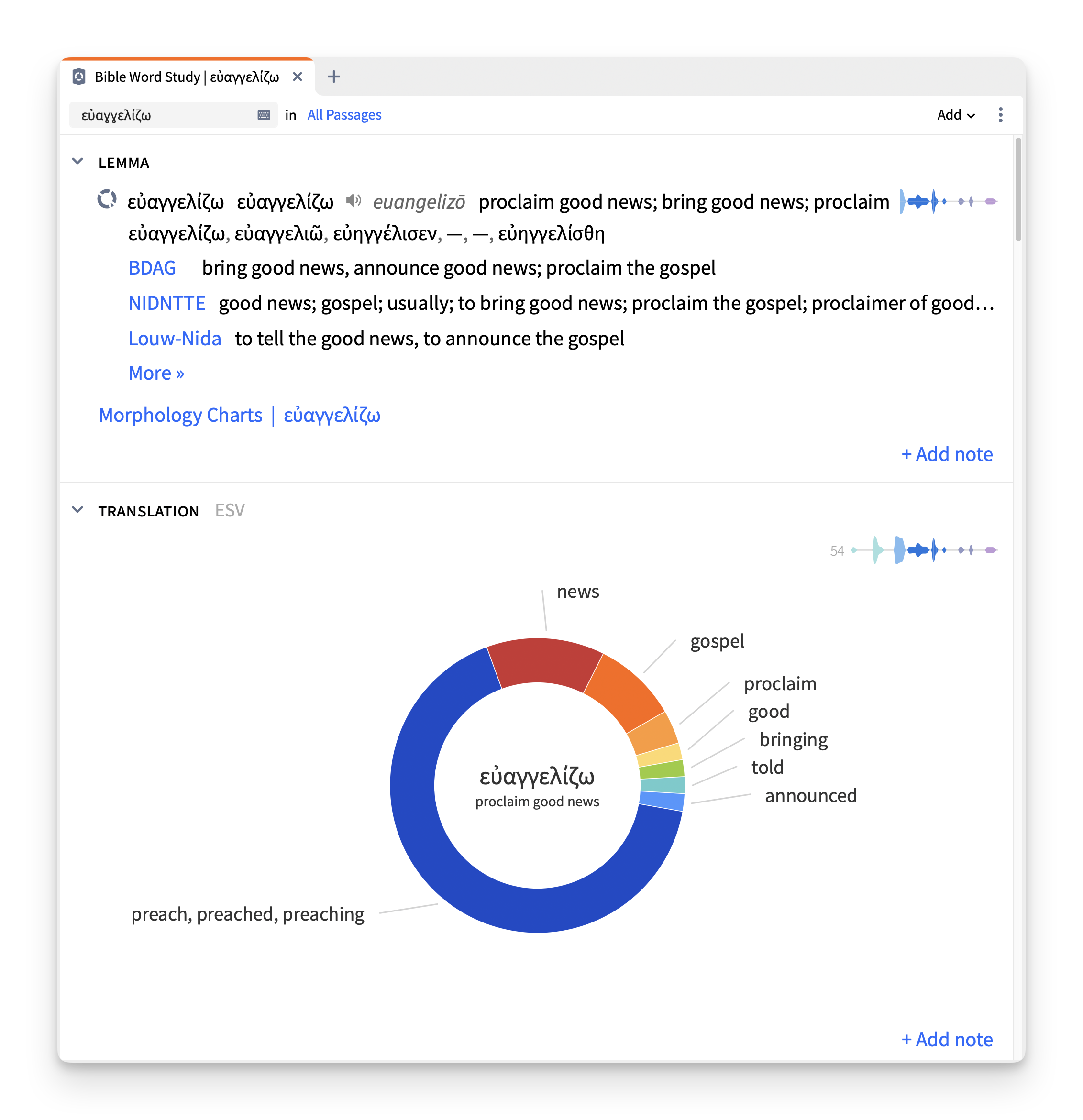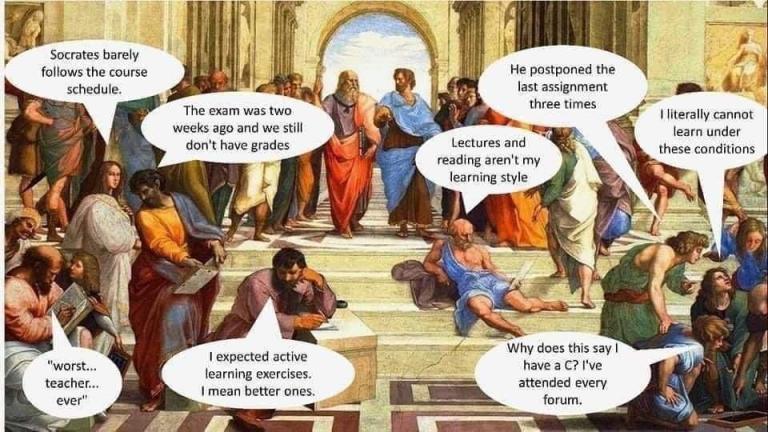
You can’t read the pages of the Bible and not see that God wants his people to tell of his mighty deeds—to call people to follow the one true God.
In the Old Testament, the mission was centripetal: Israel was to bring the nations up to Jerusalem. Isaiah writes,
In the last days the mountain of the Lord’s house will be established at the top of the mountains and will be raised above the hills. All nations will stream to it, and many peoples will come and say, “Come, let’s go up to the mountain of the Lord, to the house of the God of Jacob. He will teach us about his ways so that we may walk in his paths.” For instruction will go out of Zion and the word of the Lord from Jerusalem. (Isa 2:2–3 CSB, emphasis added)
In the New Testament, the mission shifts from being centripetal to centrifugal. The commissions of Jesus (in chronological order: John 20:21, Matt 28:18–20, Luke 24:46–48, and Acts 1:6–8) all point to this. In Acts 1, the final words of Jesus send us out to the world:
“But you will receive power when the Holy Spirit has come on you, and you will be my witnesses in Jerusalem, in all Judea and Samaria, and to the ends of the earth.” (Acts 1:8)
It is now out from Jerusalem.
Furthermore, one of the most striking things about the book of Acts is also one of the simplest: The early church did exactly what Jesus called them to do. Jesus commissioned his followers to make disciples (Matt 28:19–20) and to be his witnesses to the ends of the earth (Acts 1:8). The pages of Acts detail how that band of believers did just that, going forth on a global mission that has literally touched the entire world. They overcame obstacles and seized opportunities, showing and sharing Jesus.
You probably knew that already—I’ve said it so often my fingers could type it in their sleep. But knowing it and seizing it are two different things.
God is on a mission—and he invites us to join him on that mission, spreading the good news of Jesus. That’s evangelism.
But what makes this moment different?
Table of contents
What’s happening? A unique season of opportunity
These are not normal times. Christianity is experiencing renewed interest. Many speak of a “vibe shift.” I wrote about it for USA Today on Easter Sunday.
Every so often, the church is given a unique cultural window to elevate the name of Jesus.
Back in the late 1960s and early ’70s, after a decade marked by unrest, protest, and counterculture movements, people turned to spirituality in general and Jesus in particular. We see this in varying ways, though not all aligned with Scripture. From the musicals Jesus Christ Superstar and Godspell, to songs like “Spirit in the Sky” to “O Happy Day,” Jesus emerged in pop culture. The Jesus People Movement, a youth revival movement that spread like wildfire, made the cover of Time and Life magazines, changing the worship style of churches to this day.
In many ways, we’re in a similar moment.
And we can’t afford to miss it.
Take The Chosen. Beginning as a crowdfunded project, it has become an international phenomenon. In 2025, Season 5 earned $140 million in theaters over Easter weekend. It topped Apple TV in 2024 and now streams on Amazon Prime.
We see faith-based films Jesus Revolution (2023), which tells the story of the Jesus People Movement itself, and recently the series House of David on Amazon Prime. Forthcoming projects include The Unbreakable Boy, I Can Only Imagine 2, and the sequel to Passion of the Christ.
Joe Rogan had apologist Wesley Huff on to talk about Christianity—and Rogan started going to church.
The He Gets Us campaign put Jesus front and center in Super Bowl ads, other professional sports events, and across social media.
Mainstream shows demonstrate the rise of Jesus in culture today. On Easter Sunday in 2025, American Idol featured a worship night. Contestants sang worship and gospel songs. The night featured CeCe Winans, and introduced America to the song collaboration between Brandon Lake and Jelly Roll, “Hard Fought Hallelujah.”
In sports, Christian witness is booming. The national champion NCAA football team from The Ohio State University made headlines with many players speaking openly about their faith and baptizing over 50 people at one event. Top athletes, including golfer Scottie Scheffler, 2025 Super Bowl MVP Jalen Hurts, 2024 NBA champion coach of the Boston Celtics Joe Mazulla, and 2025 Kentucky Derby-winning jockey Junior Alvarado, speak openly of their faith in Jesus.
Current data about Gen Z tells a compelling story. There is an upswing in church attendance especially among Gen Z men. A report of a “Quiet Revival” in the UK reveals a significant rise in church attendance among Gen Z, with church attendance quadrupling from 2018–2024. The growth is even stronger among Gen Z men, whose attendance swelled more than fivefold from 4 percent to 21 percent. Today 2 million more people are attending church services in the UK than attended six years ago.
This isn’t just an anomaly. It’s an opportunity. Though we still face significant cultural opposition in our time, we find ourselves in a time full of possibility.
So, all of this brings up the question: How should the church respond? What do we do with this apparent turn we are seeing?
How might we respond? Looking to Scripture’s example
The openness is good news, but it’s bad news that probably brought us here.
The last few years have rattled Americans, and with good reason. We’ve seen unprecedented political division, a global pandemic, and wars. And, we still face an uncertain future. It appears that we are one crisis away from widespread social unrest.
Moments like this—disrupted moments—cause people to look anew at who they are and what they believe. Disruption has created this cultural moment.
We look to God’s Word to see how the early church met the challenges and disruption of their day—in particular persecution—to continue spreading the gospel. If they did that in the face of obstacles, how can we respond in the face of opportunity?
The early church was in and out of seasons of persecution. Their world was disrupted, but so was their time—occupied by Romans, uncertain of their national future, and then persecution breaks out. But, as we’ll see, their time of persecution was also a time of opportunity.
One of the most riveting passages in Acts comes in chapter 11, where Luke picks up the story of the outbreak of persecution following Stephen’s martyrdom as recorded in chapter 7. He explains how their disruption led to gospel opportunity–and how they seized it.
As he often did, Luke summarizes what happens next at the beginning of chapter 8:
On that day a severe persecution broke out against the church in Jerusalem … Saul, however, was ravaging the church. He would enter house after house, drag off men and women, and put them in prison. (Acts 8:1–3)
How did the early Christians react to this disruption and their first incidence of widespread persecution? “So those who were scattered went on their way preaching the word” (Acts 8:4). Now, don’t let the word “preaching” here confuse you. This isn’t talking about standing behind a pulpit. The Greek term used here is “evangelizing” (εὐαγγελίζω), that is, they simply told the good news (evangel) of Jesus wherever they went.

Study words like εὐαγγελίζω with Logos’s Bible Word Study.
Luke picks things up again in 11:19–20:
Now those who had been scattered as a result of the persecution that started because of Stephen made their way as far as Phoenicia, Cyprus, and Antioch, speaking the word to no one except Jews. But there were some of them, men from Cyprus and Cyrene, who came to Antioch and began speaking to the Greeks also, proclaiming the good news about the Lord Jesus.
Luke adds important details, including the geographical spread of Christians, and how they spoke first to Jews and then Greeks, reiterating their message was the gospel (“proclaiming the good news”).
This passage is not incidental to the larger message of Acts. Antioch was the fourth largest city in the Roman Empire, a gentile city of some influence. A church planting movement enabled by evangelism established Antioch as the outpost for further missionary expansion, evangelism, and the planting of churches. Why? Because it was from Antioch that Paul would begin his missionary journeys (Acts 13:1ff).
Historian Michael Green comments on this passage, noting that the early centuries saw the rise of Christianity across the Roman Empire not mainly through gathering people into mass meetings or a select group of gifted preachers, but by everyday Christians telling the good news informally out of the reality of their changed lives. They shared Christ not through “formal preaching, but the informal chattering to friends and chance acquaintances, in homes and wine shops, on walks, and around market stalls.” He adds, “They went everywhere gossiping the gospel; they did it naturally, enthusiastically, and with the conviction of those who are not paid to say that sort of thing” (emphasis added).1
Now, the point is not to compare our last few years to the persecution in Acts. The point is that disruption leads to gospel opportunity.
Their disruption—like ours has—led to gospel opportunity. We just have to seize that moment.
What can we learn? 4 practical takeaways
So, back to the earlier question. If the first believers responded to their moment of disruption, how can we respond in the face of opportunity?
As we continue to dig into the text, we observe four practical takeaways that, I trust, we can apply to our own moment.
1. Expect disruption to open doors for the gospel
In Acts 11, disruption had scattered believers because of persecution, but it did not silence them. They boldly proclaimed Christ as they went, no matter what they faced. In fact, Paul told the church at Corinth, “a wide door for effective ministry has opened for me—yet many oppose me” (1 Cor 16:9).
Opposition was no obstacle to the gospel; disruption failed to divert their mission. Instead, it emboldened these early believers to proclaim Christ boldly.
In a comparable way, cultural shifts, digital disruption, and even social anxiety and mental health issues among Gen Z create a hunger and openness to spiritual things. Rather than retreat, Christians should see this as an opportunity for faithful presence in new spaces—online, on campus, in our communities, and in everyday conversations.
2. Boldly cross boundaries for the sake of the gospel
In Acts 11, these scattered Jewish believers began sharing the gospel with Greeks (gentiles) as well (Acts 11:20). The challenges they faced led to greater boldness, not less.
Likewise, we should boldly and lovingly take the gospel to those who are not like us. Jesus intentionally said in Acts 1:8 to take the gospel to Jerusalem, Judea, Samaria, and to the ends of the earth. Samaritans represent people not like us, or even those we don’t naturally care to be around.
In our cultural moment, division abounds. There are people who are “not like us” and thus “not of us.” And cable news and talk radio are moving us to people who are only like us. Yes, in this gospel opportunity, we join Jesus on his mission when we break that mold and break free from that echo chamber—living on mission in a counter cultural way in a culturally divided moment.
Just as our Lord “had to travel through Samaria” (John 4:4), the current times call for bold witnesses to love the hard to love, the marginalized, and the ostracized among us.
3. Partner with the Holy Spirit who’s at work
The dominant person in the outreach of the early church in Acts is the Holy Spirit. Again and again you read about a believer or believers being filled with the Spirit, and as a result they proclaimed Christ (Acts 4:8, 31; 6:5–7). In Acts 11:24 we read that Barnabas was full of the Holy Spirit, and “large numbers of people were added to the Lord” (see also v. 21).
What we are seeing today is the work of the Spirit, giving us an opportunity to make much of Jesus. This is a reminder that all our plans, gifts, and resources pale in comparison to the work of God through the Spirit. We partner with God in our witness.
4. Mobilize with encouragement, not guilt
In Acts 11 we read that Barnabas was sent by the church at Jerusalem to lead the growing movement in Antioch (v. 22). Barnabas’s life was marked by encouragement (Acts 4:36–37), so it’s no surprise that upon arriving in Jerusalem he encouraged them (Acts 11:23). What was the result? Many more came to Christ (v. 24b).
Believers today don’t need a guilt trip—they need confidence. We will mobilize witnesses by encouragement, not chastisement. Let us remind believers that we were made for this moment—to be ambassadors for our King to a broken world.
Conclusion
I’ve written several times that we are amid a cultural convulsion—a unique time of turbulence and tumult, unlike anything we have seen in our lifetime. The last time we saw a moment like this was the late ’60s, which is worth noting.
Moments like this unmoor people from their beliefs. Sometimes that’s led to bad things—we all know some people who have gone off the proverbial deep end in the last few years. However, that unmooring is also a gospel opportunity, a moment to join Jesus on his mission in the world, tell of his mighty deeds, and (once again) call people to follow the one true God.
It’s a great opportunity to “make the most of the time” (Eph 5:16), and though evangelism is always our call, this is a unique cultural moment to seize.
Let’s be found faithful in this moment.
Ed Stetzer’s recommended resources for seizing the moment
- Elliot Clark. 2024. “Evangelism in a Post‑Christian Culture.” 9Marks, April 2024.
- Ed Stetzer. 2024. “The Polarization Problem.” Outreach Magazine, November 18, 2024.
- Ed Stetzer. 2024. “How to Make Evangelism Part of Your Culture.” Outreach Magazine, October 15, 2024.
How to Talk about Jesus without Looking like an Idiot: A Panic-Free Guide to Having Natural Conversations about Your Faith
Save $0.54 (5%)
Price: $10.25
-->Regular price: $10.79
How to Talk about Jesus: Personal Evangelism in a Skeptical World
Price: $10.99
-->Regular price: $10.99
Browse works by Ed Stetzer
Planting Missional Churches: Planting a Church that’s Biblically Sound and Reaching People in Culture
Save $0.50 (5%)
Price: $9.49
-->Regular price: $9.99
Planting New Churches in a Postmodern Age
Save $1.05 (5%)
Price: $19.94
-->Regular price: $20.99
Breaking the Missional Code: Your Church Can Become a Missionary in Your Community
Save $0.70 (5%)
Price: $13.29
-->Regular price: $13.99
11 Innovations in the Local Church: How Today’s Leaders Can Learn, Discern and Move into the Future
Save $0.57 (5%)
Price: $10.83
-->Regular price: $11.40
Subversive Kingdom: Living as Agents of Gospel Transformation
Save $5.25 (35%)
Price: $9.74
-->Regular price: $9.74
Comeback Churches: How 300 Churches Turned Around and Yours Can, Too
Save $0.50 (5%)
Price: $9.49
-->Regular price: $9.99
Christians in the Age of Outrage: How to Bring Our Best When the World Is at Its Worst
Save $0.51 (5%)
Price: $9.68
-->Regular price: $10.19
Transformational Groups: Creating a New Scorecard for Groups
Save $0.65 (5%)
Price: $12.34
-->Regular price: $12.99
Lost and Found: The Younger Unchurched and the Churches that Reach Them
Save $0.50 (5%)
Price: $9.49
-->Regular price: $9.99
Viral Churches: Helping Church Planters Become Movement Makers
Save $1.00 (5%)
Price: $18.99
-->Regular price: $19.99
Transformational Church: Creating a New Scorecard for Congregations
Price:
-->Regular price:
Christians at Our Best: A Six-Week Guide to Living in the Age of Outrage
Save $0.36 (5%)
Price: $6.78
-->Regular price: $7.14
Related articles
- What Evangelism Is & Why 3 Laws Are Better Than 4
- Are You Making These 7 Common Evangelism Mistakes?
- 5 Ways to Motivate & Train Students in Evangelism
- How to Minister in a Disenchanted Age? 1 Peter and Re-Personalization

 1 month ago
71
1 month ago
71









 English (US) ·
English (US) ·